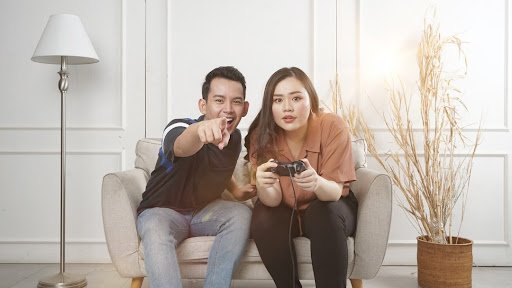
The Link Between Video Games and Self Confidence
Gaming in the past has typically been viewed through a negative lens. But, in today’s world, where technology dominates nearly every area of our lives, the benefits that games may offer youth and adults alike can’t be understated. But how exactly do video games impact certain areas such as our confidence and self-esteem? Let’s dive into the link between video games and confidence to see how playing some of your favorite video games may positively impact you.
How do video games improve our self-confidence?
There are numerous reasons why video games can be so beneficial to our psyche and change the way in which we view ourselves and the world around us. Some of the most notable points to take into consideration include:
- The ability to play characters we can relate to: On the surface level, we can become any person we wish to be in a video game. For example, if you’ve just started playing Overwatch, there are plenty of great Overwatch characters like Soldier 76, Torbjorn, and Orisa that you can step into that may make you feel more powerful. Better yet, your game character may help you feel more social and connected as you play with your Overwatch team. On a deeper level, playing games with characters who teach us important lessons or help us become better versions of ourselves can help boost our confidence. Whether you’re playing a game like Overwatch from Blizzard or a video game with a positive narrative arc and character development, all games may help you see yourself in a new light.
- Learning skills that can be applied to real life: While there are many games that simply offer a fun break from your day-to-day stressors, others can help you develop skills that you can apply to your own life. For example, playing strategy games can help you develop better problem-solving skills and frame your own life through the lens of the situations being played out in video games. With more skills that improve your life, the impact on self-confidence becomes clear.
- Feeling more relaxed and resilient: Video games offer mental health benefits like making players feel less anxious and stressed out. Beyond that, playing video games can also teach people resilience and persistence, tools that can teach people to believe in themselves and persevere no matter the challenge at hand. These benefits, in combination with those above, give players the support they need to see themselves in a much more positive way.
Most people think of the benefits of video games stopping at eye-hand coordination, but we’ve discovered that it goes far beyond that. The gamer is not someone who necessarily isolates and experiences ill-consequences of gaming, but someone who lives vicariously through other characters and thrives by applying those in-game lessons and benefits to their real life.

Can video games replace the therapist or treatment plans for mental illness?
While video games can be beneficial for mental health, it’s important to recognize that they’re not a replacement for counselors. To illustrate this, let’s imagine that you’ve experienced a traumatic event and are exhibiting symptoms of post-traumatic stress disorder (PTSD). The symptoms of PTSD and the underlying traumatic experience that led to these symptoms are not something that can be treated through playable characters and great storylines. For trauma or other mental illnesses, you need the support of the right type of therapy and, potentially, medication.
Continuing with the example above, trauma therapy can help you connect with a support group that offers an impactful form of psychotherapy in a retreat setting. Whether you’re dealing with negative thoughts, emotional trauma, flashbacks, or other symptoms of PTSD and symptoms of depression, turning to a new form of therapy may give you the relief that you’re not getting through your traditional treatment process. When you’re dealing with serious issues, you need serious treatment. Video games can always support you afterward.
Video games are more than just entertainment. For children and young adults, they can be very helpful to self-development and confidence. If you’re interested in seeing how video games go beyond what happens on the screen, the guide above will provide you with all the evidence you need to see where your favorite game can take you.




